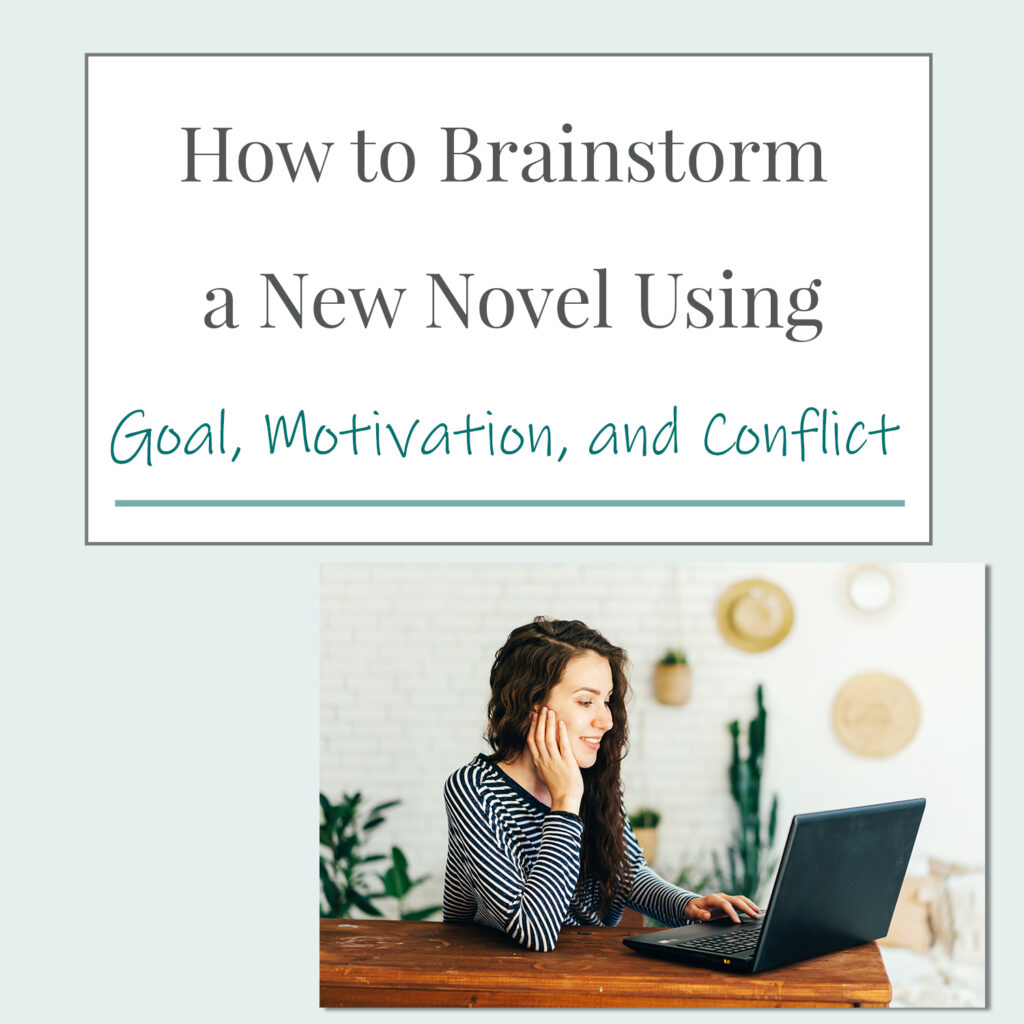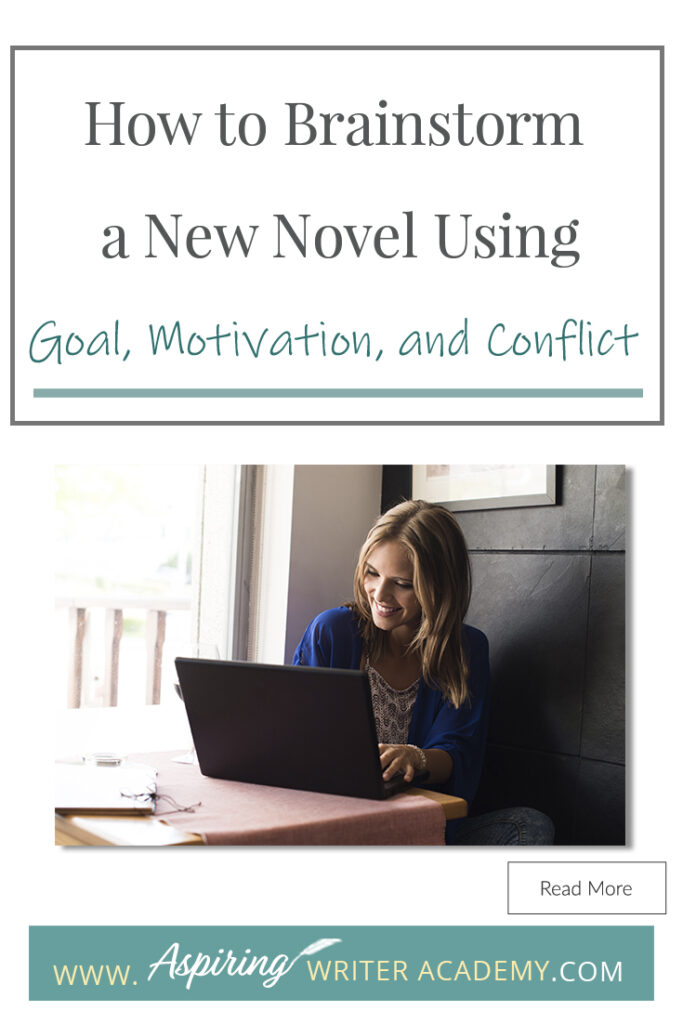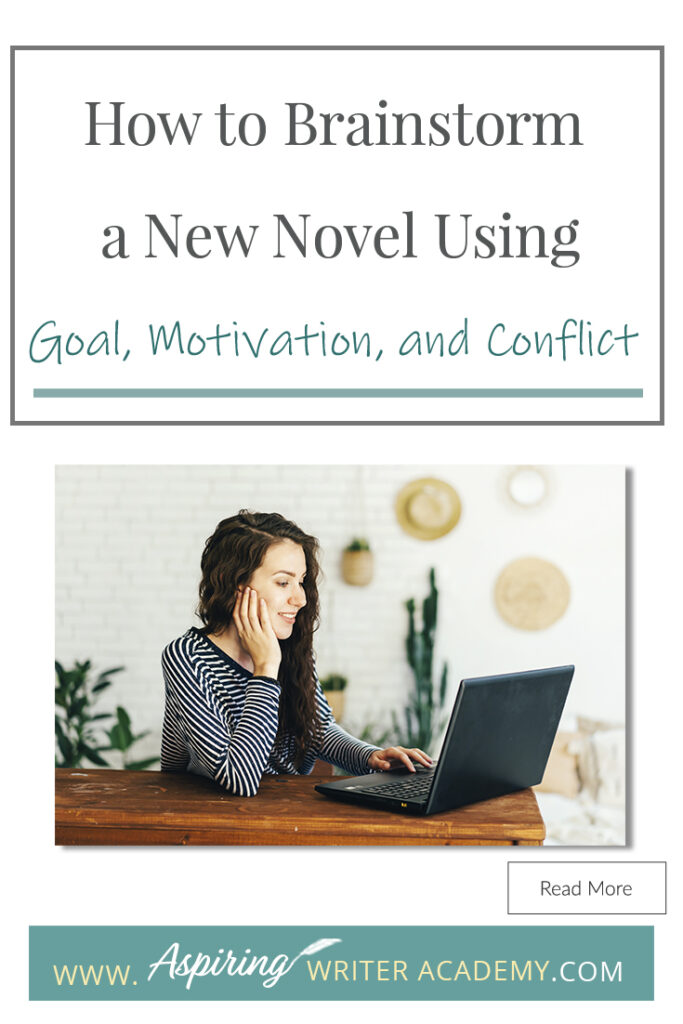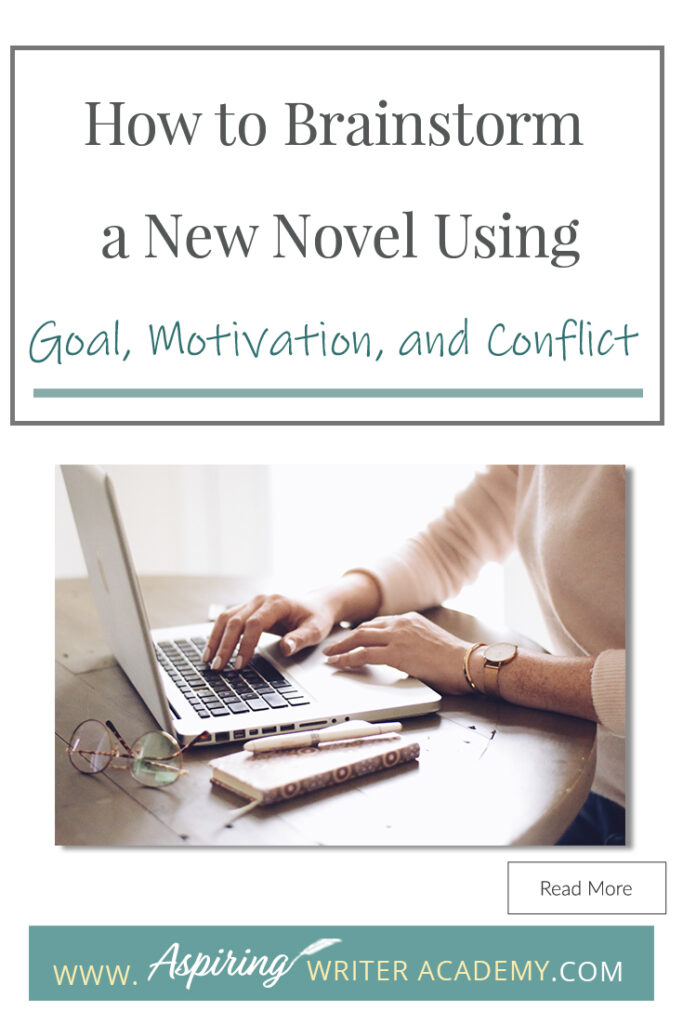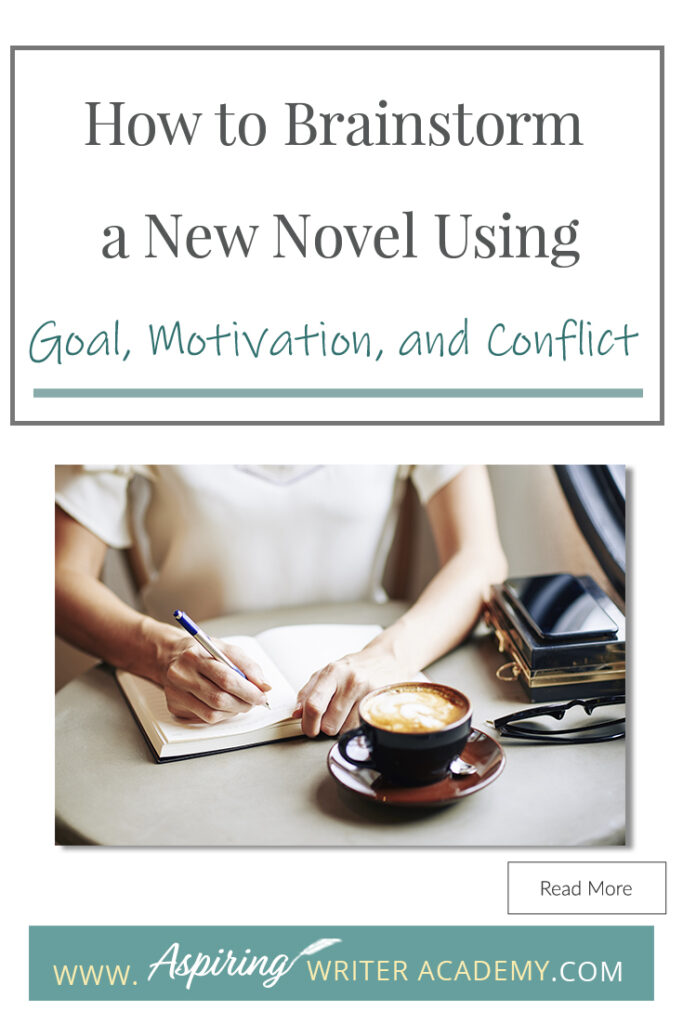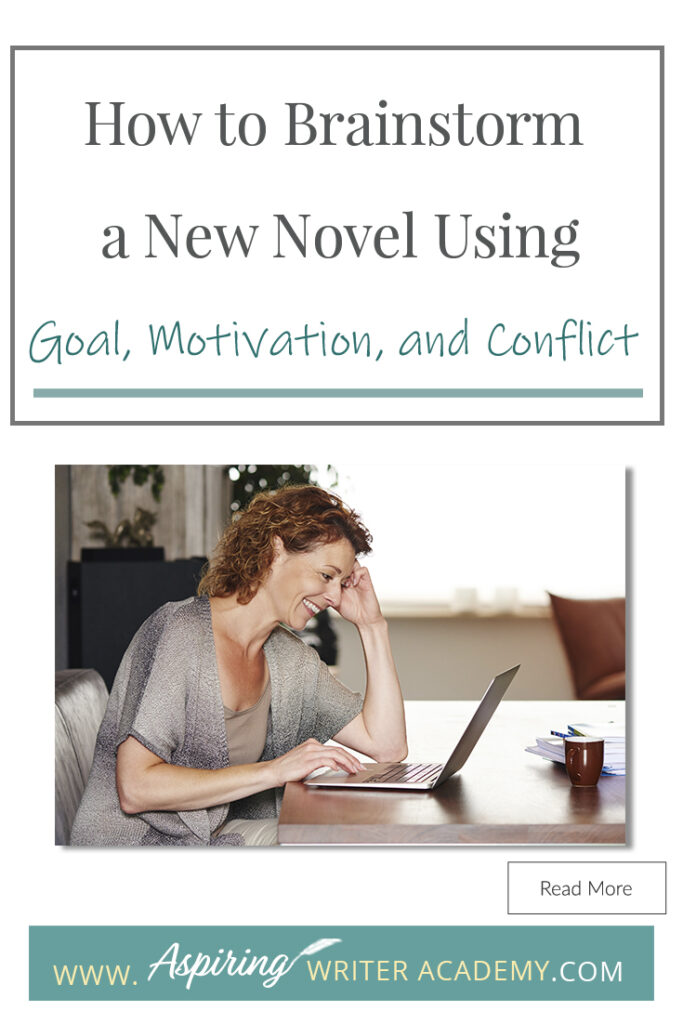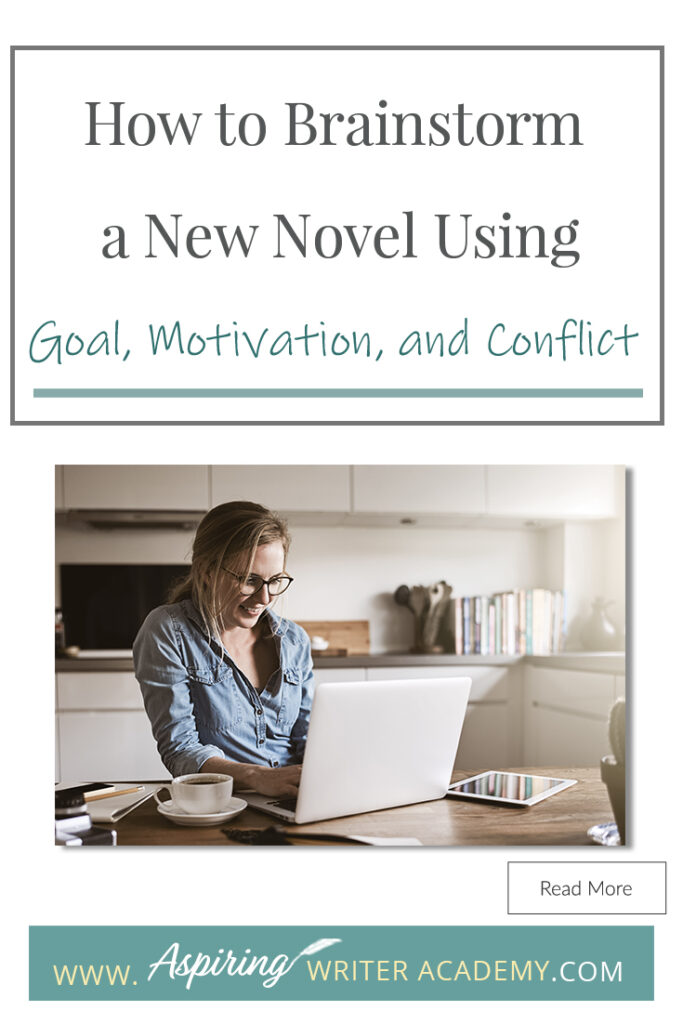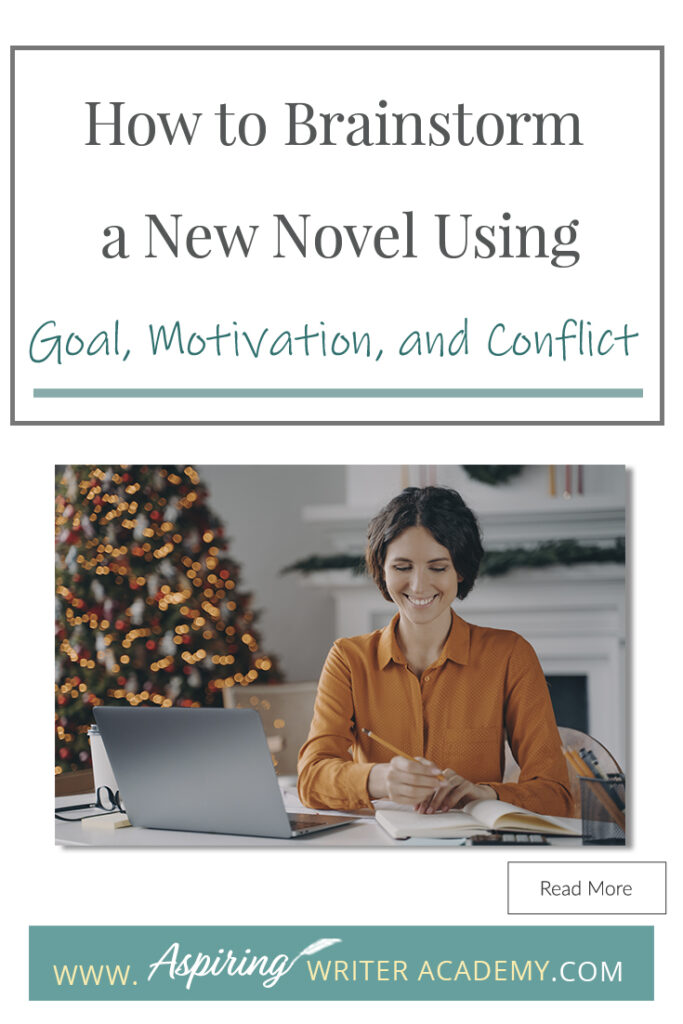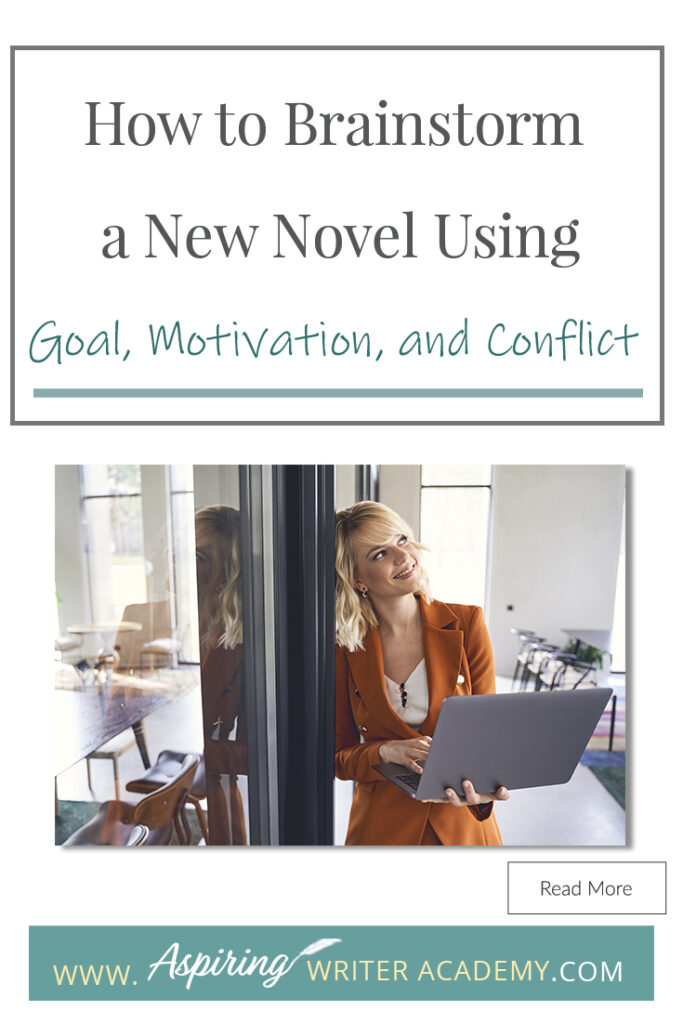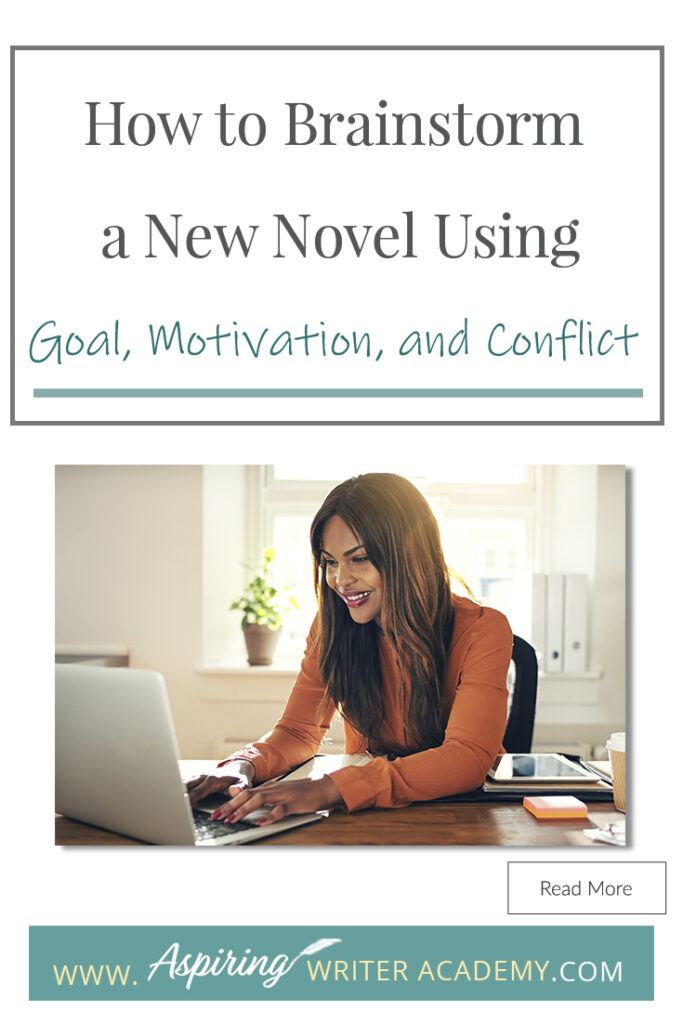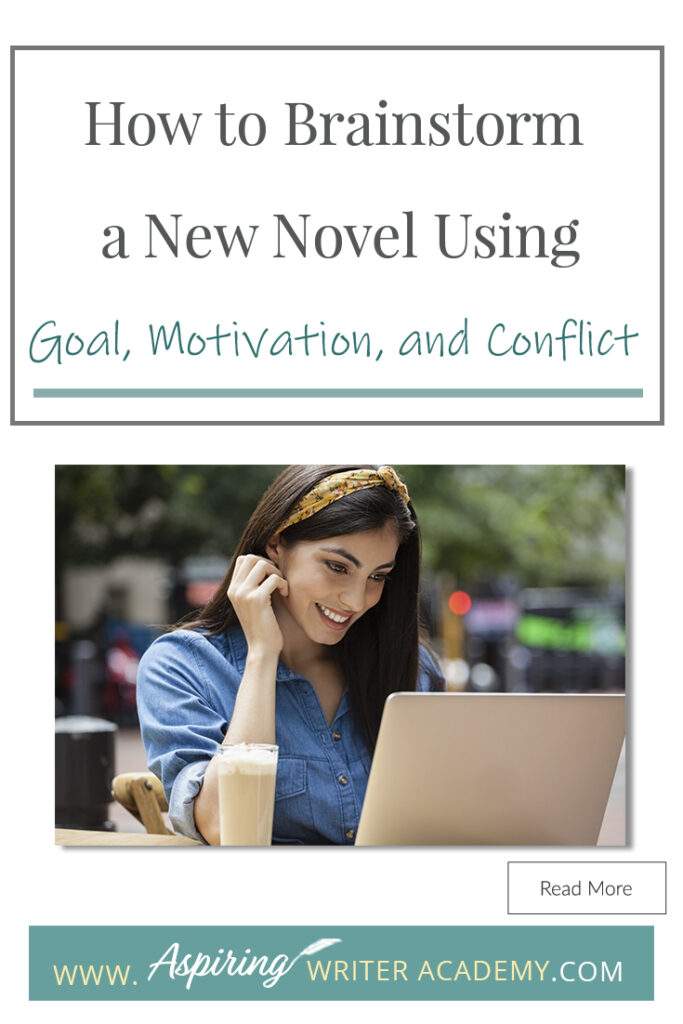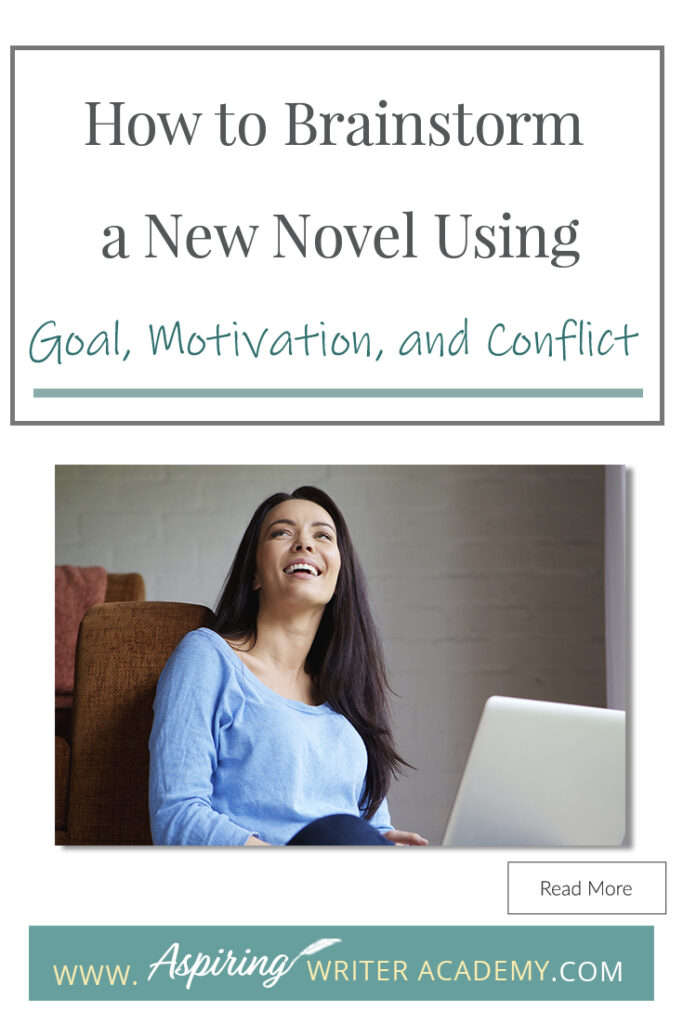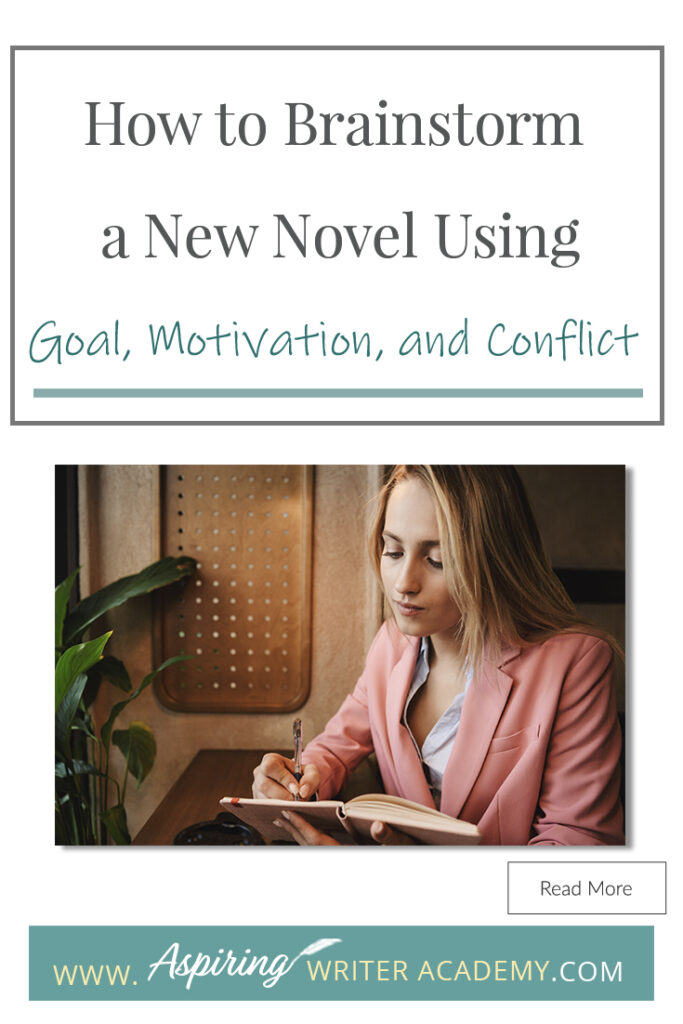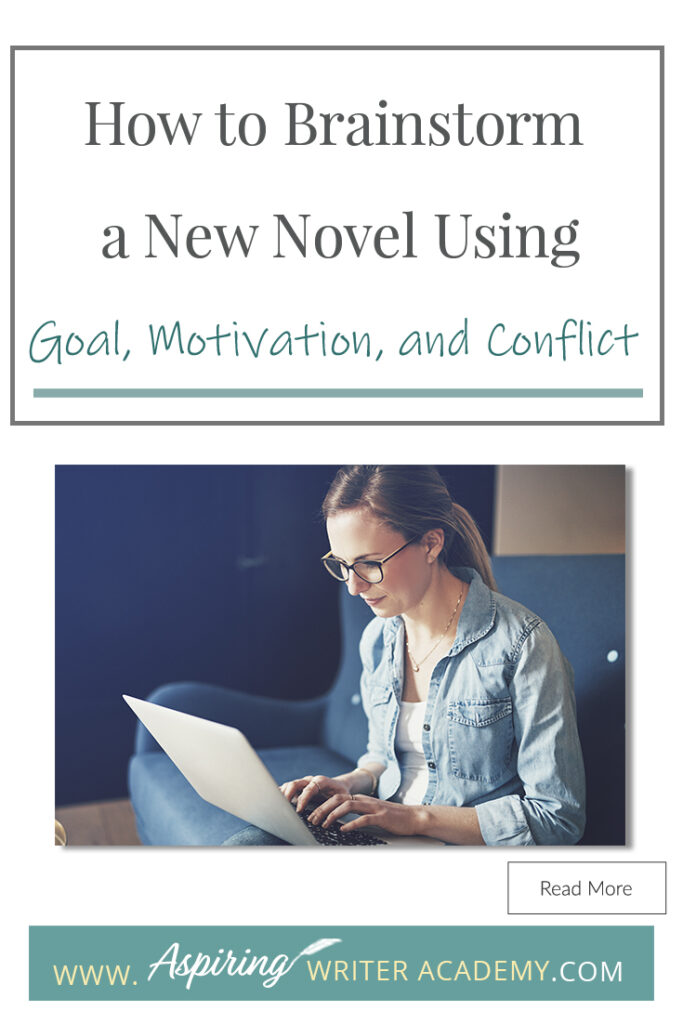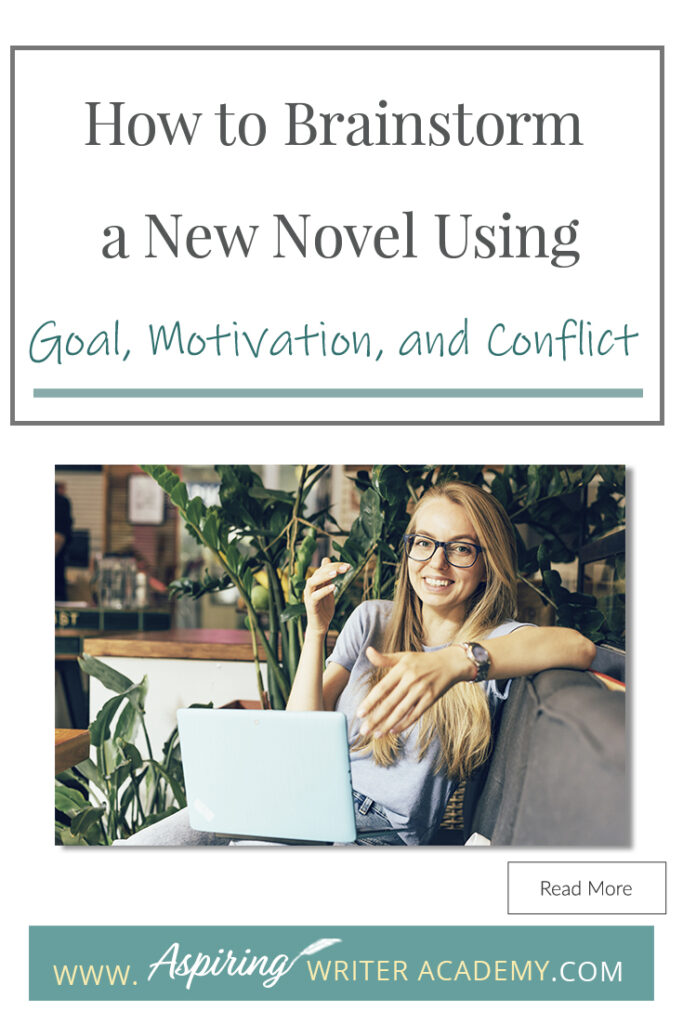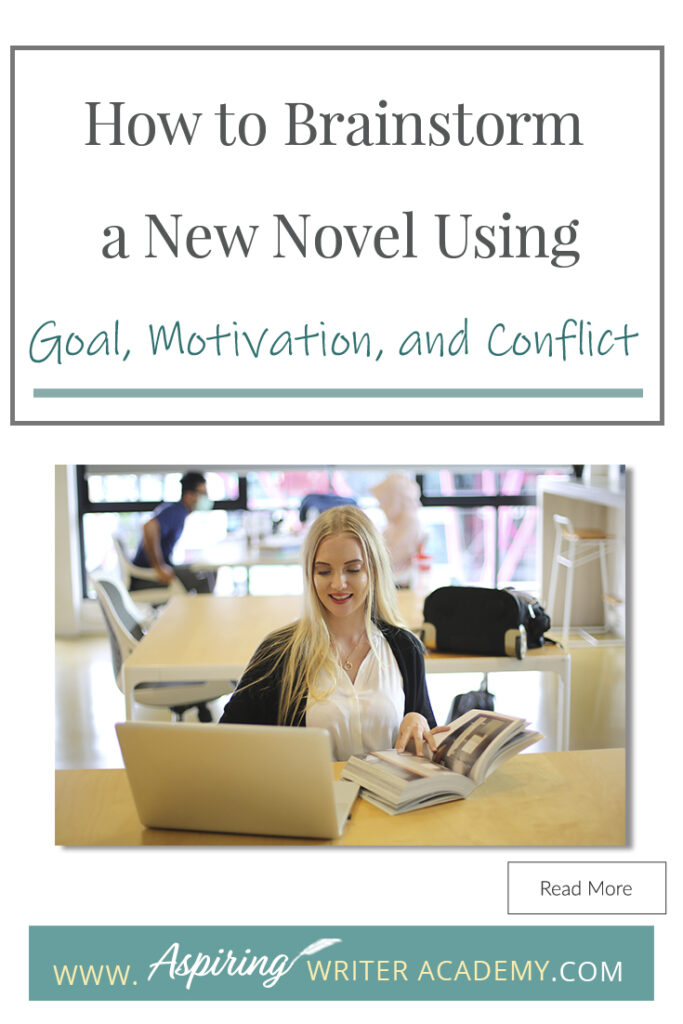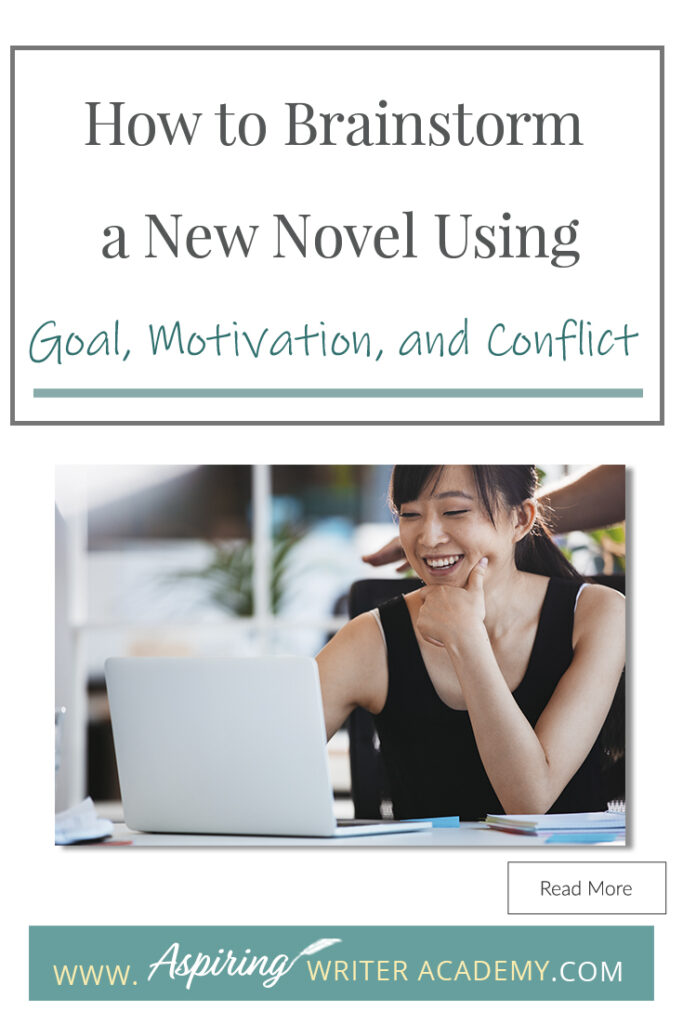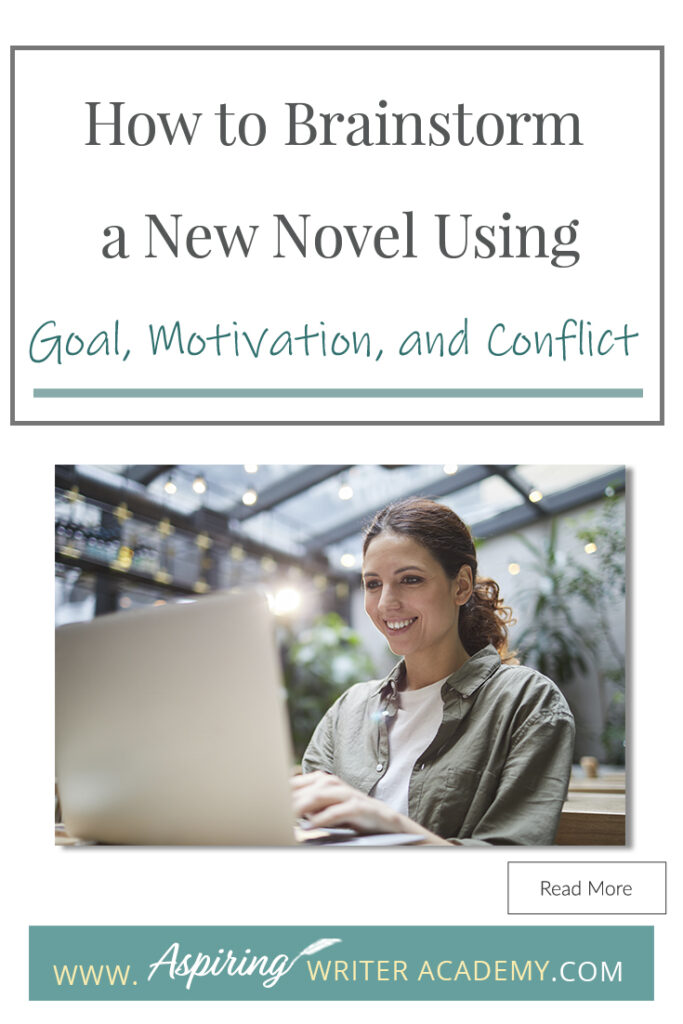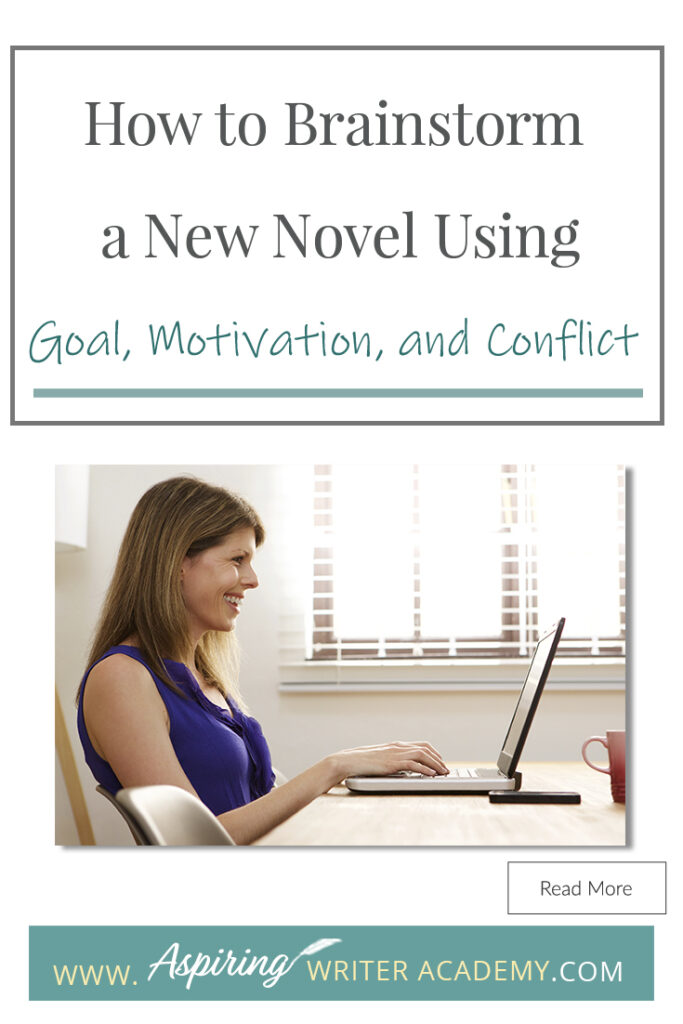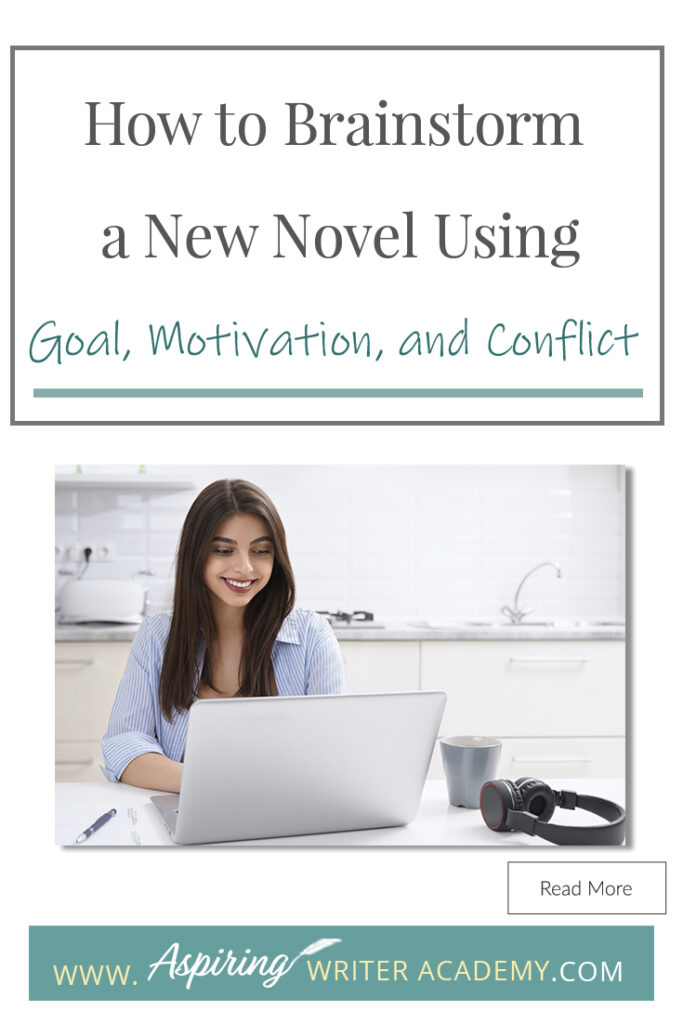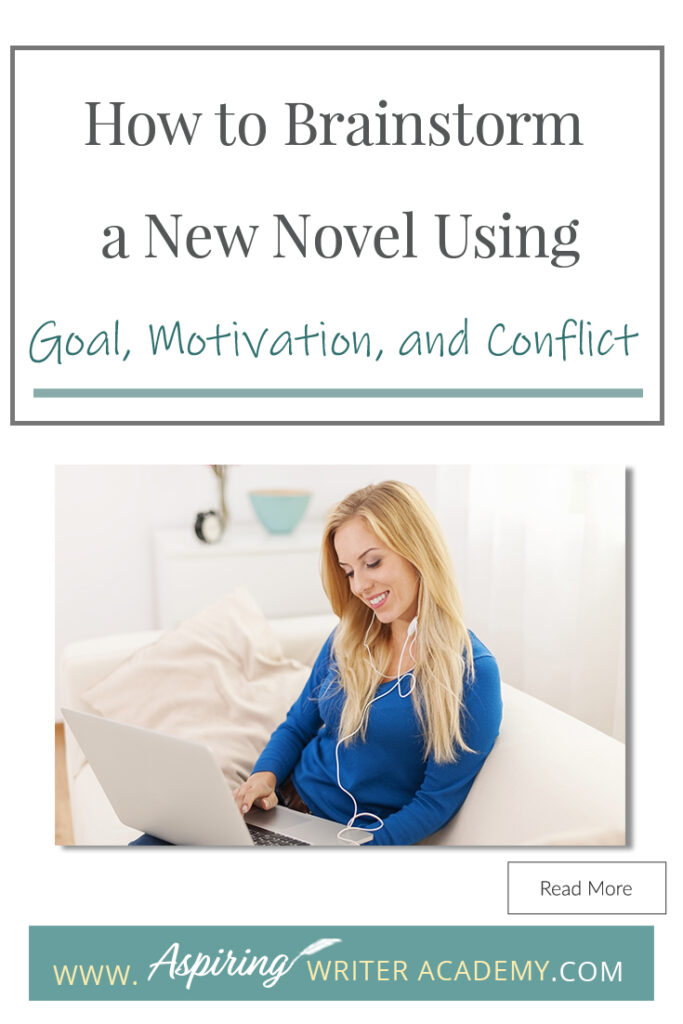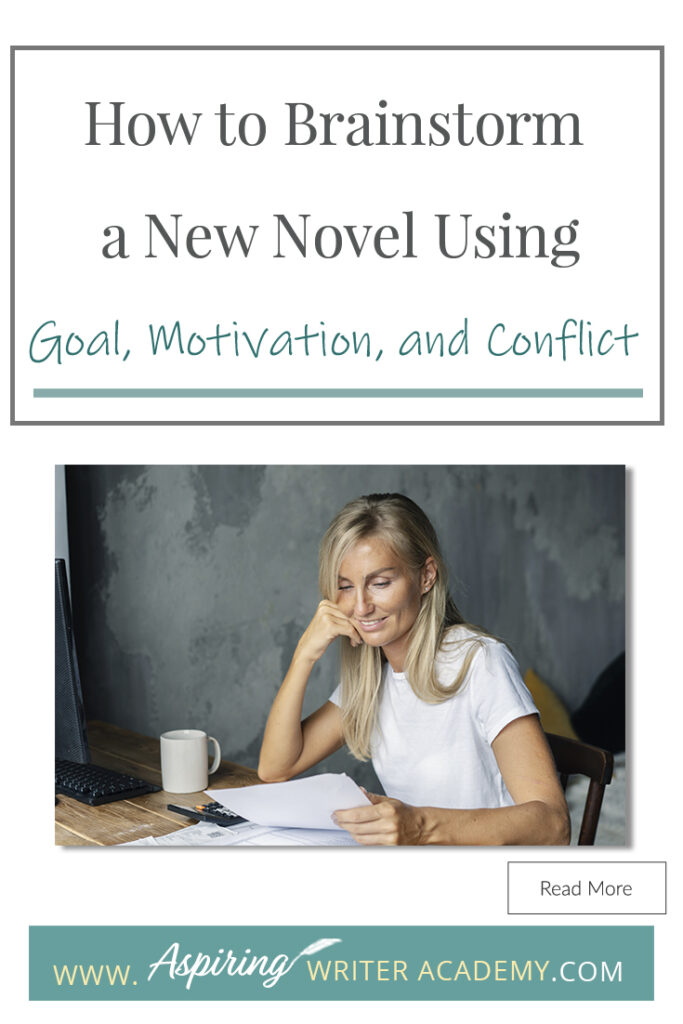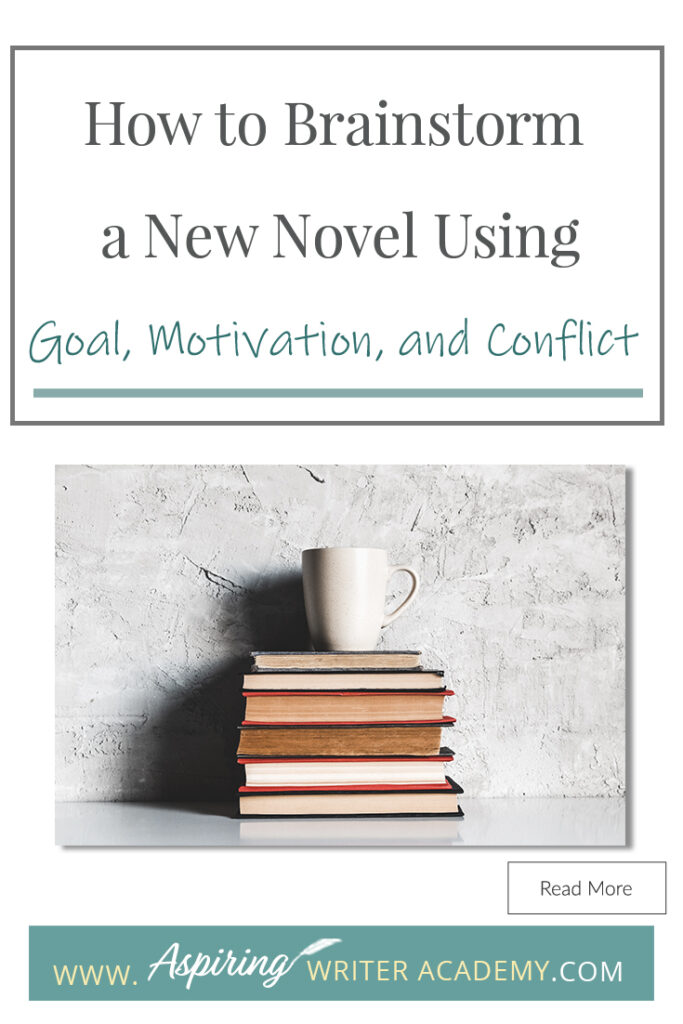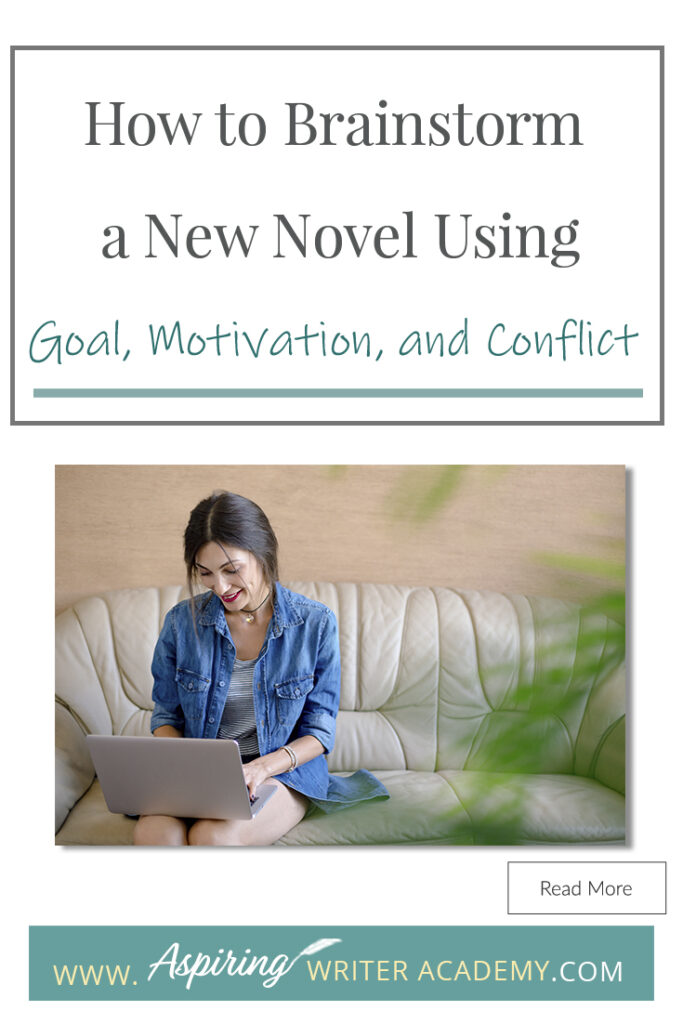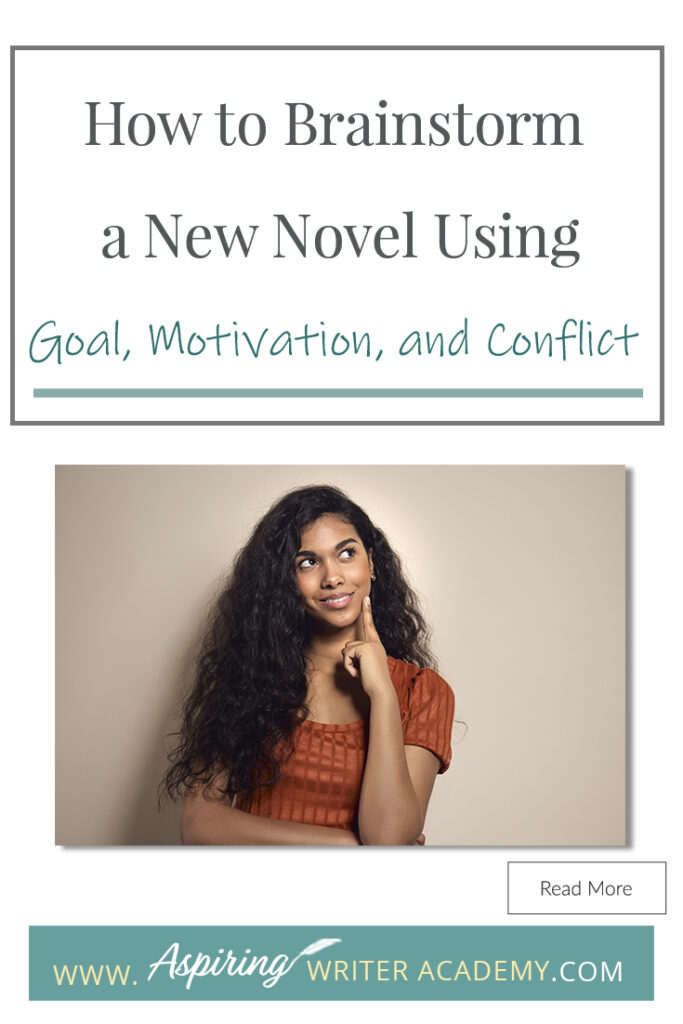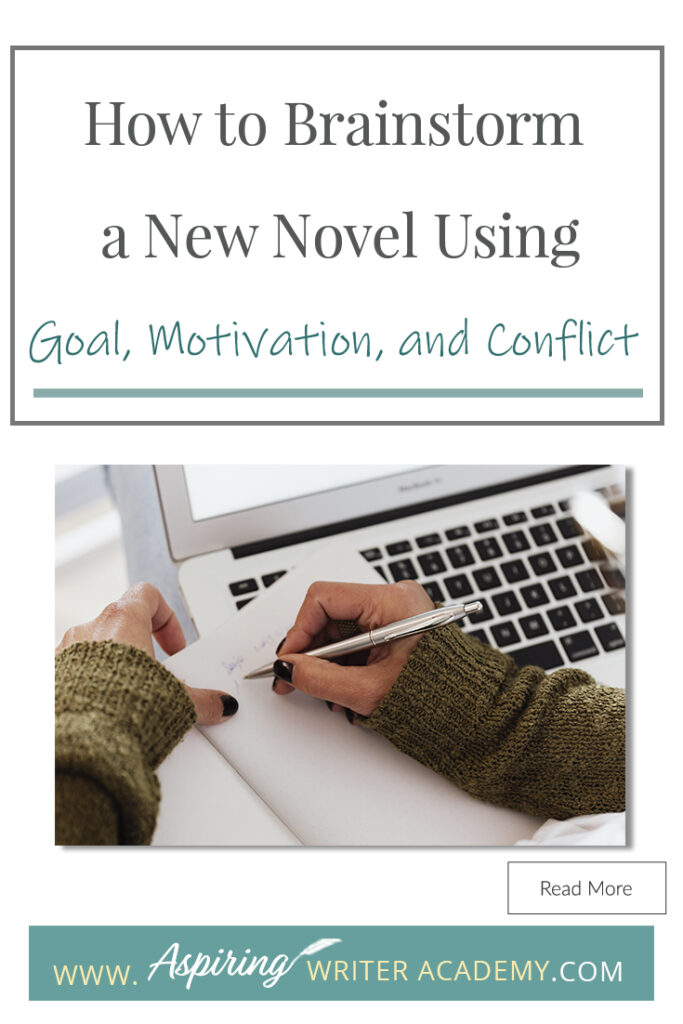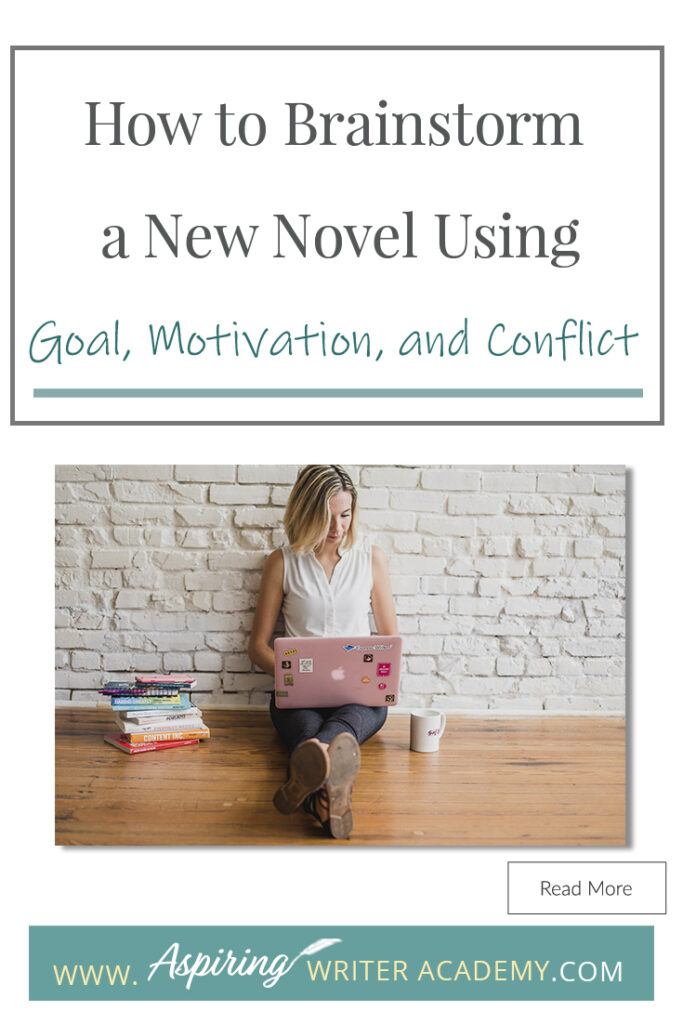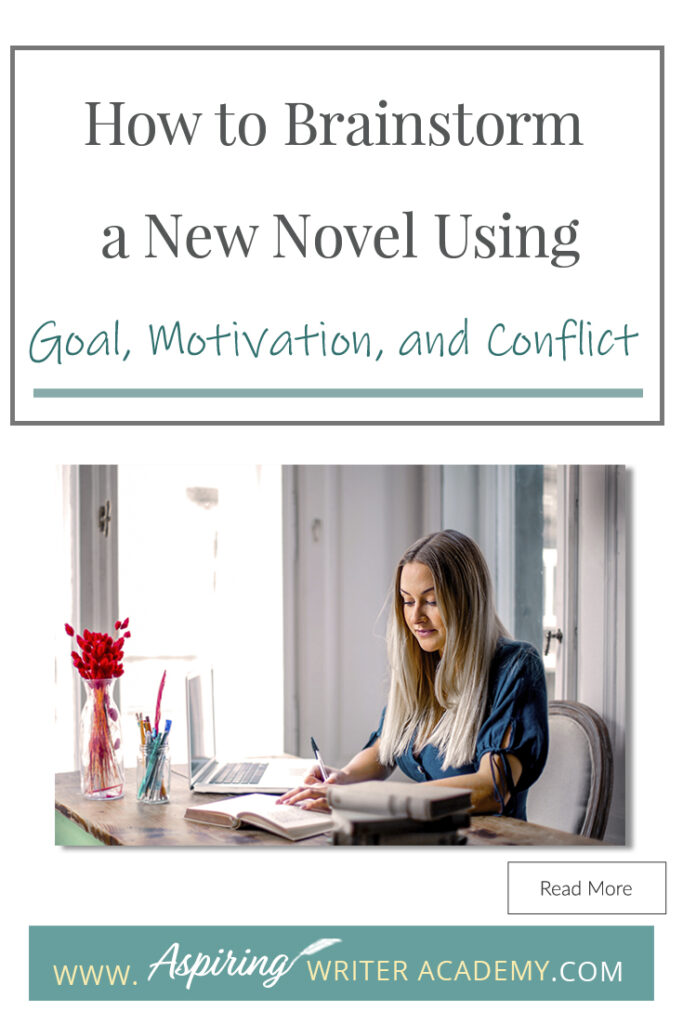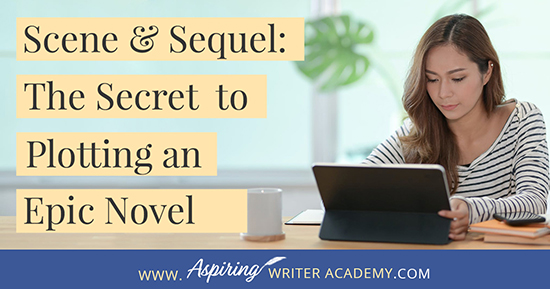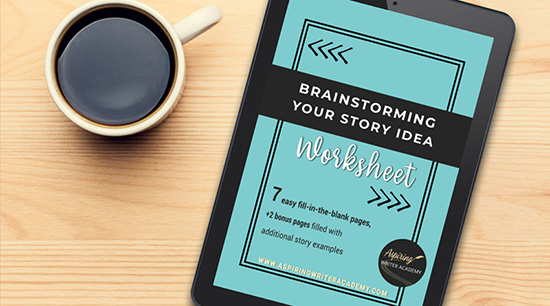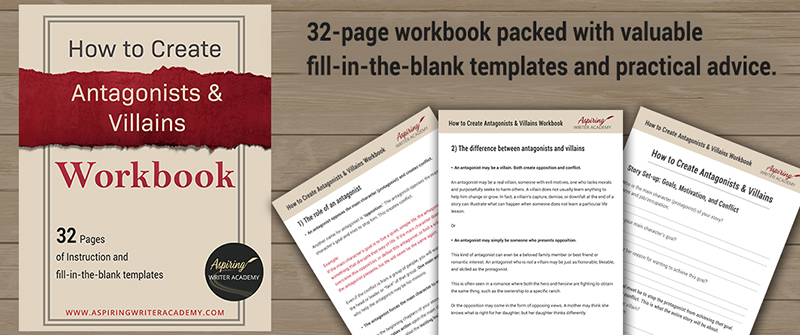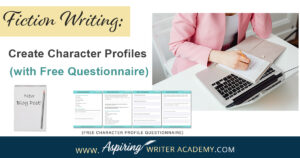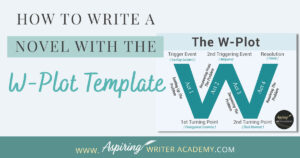How to Brainstorm a New Novel Using Goal, Motivation, and Conflict
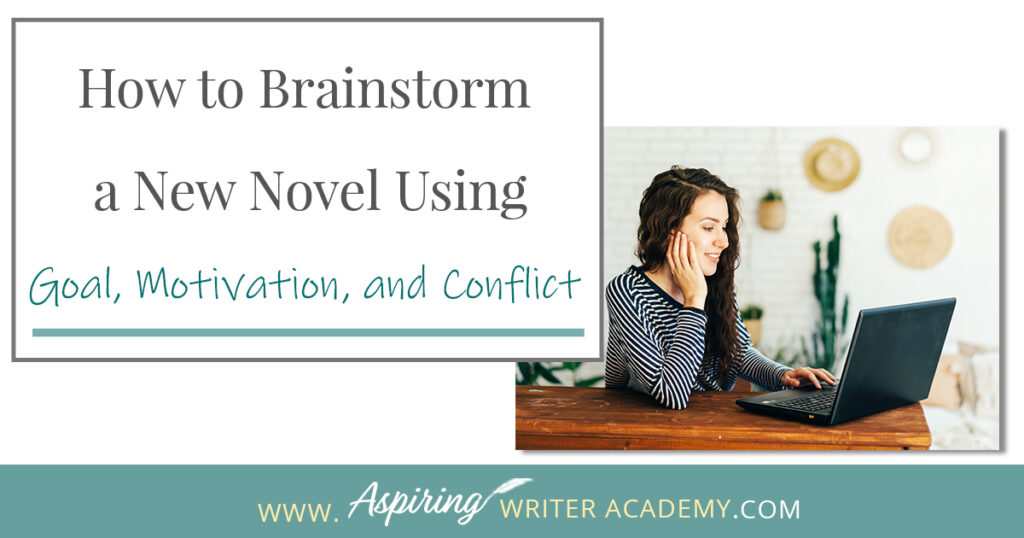
Looking for a new story idea? Before you can sit down and start writing a work of fiction, you will need to brainstorm three key elements:
- What is your character’s Goal? (What does he want?)
- What is this character’s Motivation? (Why does he want it?)
- What is the Conflict your character will face? (What is stopping him from getting it?)
In our post, How to Brainstorm a New Novel Using Goal, Motivation, and Conflict, we show you how to create a working outline to help get your story started!
A riveting story does not meander page after page, but is one where the characters have specific goals, for specific reasons, and they will fight to overcome any opposition in their path. Because their goals matter. Failure to achieve their goals will cost them greatly.
Characters should have Goals, Motivation, and Conflict in your novel as a whole, in each chapter, and yes, in each scene. Working together, Goal-Motivation-Conflict is what drives your story forward on every level.
1) GOAL
If you are just starting a new story you will need to brainstorm: What will your main character’s story journey be about?
What is your character’s Goal? (What does he/she want?)
You will also need to consider why this character wants this goal or why he wants to go on this quest / mission, and who will try to stop your character from achieving this goal?
If your character’s goal is to be a ballerina and this goal has nothing to do with the story drama or conflict, and there is no one trying to prevent this character from becoming a ballerina, then this is not a story-worthy goal. It is a wish or fanciful desire.
However, if the character’s goal is to be a ballerina and an active opponent, perhaps a rival, takes away the character’s financial support, resources, or connections to pursue this goal, then the character may set a story-long goal to get a job and earn the needed money, or attend society functions to rebuild connections, and/or create a specific plan to defeat the opponent.
Does this goal drive the story forward from beginning to end?
If your character’s goal only carries him part-way through the story, the goal may not be strong enough and your story could flounder or go off on tangents that do not make sense. The character’s story goal should be a large endeavor he/she wishes to achieve which can then be broken down into several mini action steps.
For help creating a strong, story-worthy goal for your characters, (an active goal that drives the story forward), check out our post:
https://www.aspiringwriteracademy.com/why-your-characters-need-story-worthy-goals/
2) MOTIVATION
What is this character’s Motivation? (Why does this character want this goal? Why does it matter? What consequences does the character face if he fails?)
Perhaps if you are writing a ‘who-dunnit novel,’ and your main character’s boss was murdered, this character’s goal may be to find and expose the murderer. But WHY would this character WANT to do this? Why would this character care? There must be a reason this character is driven into action.
Brainstorm 20 different reasons why your character should care. Why is it important that your character achieve this goal?
Perhaps the character and his boss were working on a project together and the character fears the murderer wants to stop the project and could try to murder him next.
Perhaps the character and the boss were romantically connected, and the main character fears the murderer is trying to kill anyone who gets close to him – why?
Keep asking – why?
Is it because of something that happened in the character’s past?
If so, the character will have to find and stop this murderer if the character ever wants to have a close relationship with another person again. His future happiness is at stake.
Also view the story from the opposition’s viewpoint. Why is it important for the antagonist or villain to oppose the main character and try to stop him from achieving his goal? Is it because of something that happened in the opposition’s past? What is the connection?
Make it matter! Is the reason your characters want their goals dire enough? Important enough? What are the consequences for each of them if they fail?
Conflict drives the story and if the motivation behind your character’s actions isn’t consequential enough, your reader may yawn and put the book down.
Failure to achieve their goals does not have to be life or death for your characters, but it should be life changing. The unpleasant consequences should drive your characters to do everything they possibly can to succeed.
What does your character want?
Why does he/she want it?
What in this character’s life or in their past makes this goal so important?
What will happen if the character fails?
3) CONFLICT
What is the Conflict your character will face? Who or what opposes your main character and tries to stop him from achieving his goal? And what is this person’s motivation for doing so?
The opposition creates conflict that causes tension and anxiety for your main character (and your readers.) If the motivation and conflict behind your characters actions are not consequential enough, your reader may yawn and put the book down.
A story about a perfect woman hosting a perfect tea party on a beautiful perfect day is nice, but not very interesting unless your reader is interested in learning how to host a perfect tea party. (Which sounds like a topic for non-fiction.)
However, in fiction, a story about a woman who wants to host a series of perfect tea parties but has everything under the sun go horribly wrong, is much more fun and interesting. Questions arise in the readers mind that keep them turning pages.
How will this woman handle what has happened? How will it challenge or test her values and draw out her personality traits? Did she hope to make connections that would elevate her status in society with these tea parties? Why did these horrible things happen? Did someone intentionally plan to sabotage her party? Why? What is going on behind the scenes that the woman hosting the party did not know about? What will happen next?
The consequences of the main character’s failure to achieve her goal does not have to be life or death, but it should be life changing. Not only for her but for those around her. Much like our own lives, our characters do not live in a vacuum. The actions of each character can affect others in the story. Who else will be affected if your main character fails? How can this push your main character to persevere?
How will the initial dose of conflict in your story lead to greater conflict? How can you raise the stakes or make the consequences of failure even worse? How can the conflict escalate to higher levels throughout the story?
Recap:
What is your main character’s goal?
Why does he want it? And why does it matter?
What happens if he succeeds?
What happens if he fails?
Who or what is actively trying to stop the main character from achieving his goal?
Why is this opponent doing this?
Who else in the story will be affected by the conflict between the main character and his opponent?
How will your story end? How is the conflict resolved? Does one character defeat the other or do the characters come to some kind of understanding?
Does your main character achieve his goal?
Going Deeper: Using Goal, Motivation, and Conflict in Scenes
The main character should also enter into each scene with a specific goal he wants to achieve in that particular scene. One of the smaller steps that will help him achieve the greater, larger story goal.
Each character should be motivated to achieve their scene goals for a specific reason. Why is this scene goal important? What are the stakes, the consequences if the main character does not achieve the scene goal?
Conflict: Who will oppose your main character in this scene? Who is trying to cause trouble for your main character and why? How will the opposition try to stop or cause trouble for the main character? List 3 ways the opposition will cause conflict in this scene.
Resolution: Will the main character face disappointment or failure in this scene? If he achieved his scene goal and got what he wanted, he may find there were consequences attached that will now make his life more difficult. If he has failed, he will have to decide what to do next. No matter what, the resolution will force the main character to make a decision. What will be the next action this character decides to take? This will become his next scene goal. His next mini step to try to achieve his overall story goal.
For more help with Goal, Motivation, and Conflict at the scene level, you may want to see our post: https://www.aspiringwriteracademy.com/scene-sequel-the-secret-to-plotting-an-epic-novel/
More Resources:
GMC: Goal, Motivation, and Conflict, by Deb Dixon is a valued resource that should be on every aspiring writer’s bookshelf. I have attended writing classes led by Deb Dixon and when I was starting out, she was considered the queen of ‘GMC’ in my local writing circles. You can find her book at:
Shop on Amazon: https://amzn.to/3vCKvn3
We hope you have enjoyed How to Brainstorm a New Novel Using Goal, Motivation, and Conflict, and that you have gained some valuable tips to create a working outline.
If you have any questions or would like to leave a comment below, we would love to hear from you!
And if you would like additional help developing your story idea, we invite you to download our Free Brainstorming Your Story Idea Worksheet.
Do you find it difficult to create compelling antagonists and villains for your stories? Do your villains feel cartoonish and unbelievable? Do they lack motivation or a specific game plan? Discover the secrets to crafting villains that will stick with your readers long after they finish your story, with our How to Create Antagonists & Villains Workbook.
This 32-page instructional workbook is packed with valuable fill-in-the-blank templates and practical advice to help you create memorable and effective antagonists and villains. Whether you're a seasoned writer or just starting out, this workbook will take your writing to the next level.
Our Goal for Aspiring Writer Academy is to help people learn how to write quality fiction, teach them to publish and promote their work, and to give them the necessary tools to pursue a writing career.
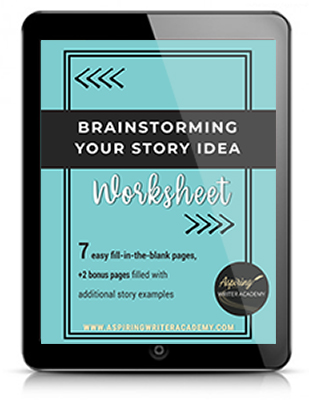
ENTER YOUR EMAIL BELOW
TO GET YOUR FREE
"Brainstorming Your Story Idea Worksheet"
7 easy fill-in-the-blank pages,
+ 2 bonus pages filled with additional story examples.
A valuable tool to develop story plots again and again.
Other Blog Posts You May Like
How to Write Query Letters (for Fiction)
Slingshot Week: How to Set New Goals for Writing in 2023
The Pros and Cons of Writing Holiday Fiction (Collections & Anthologies)
Biggest Self-Publishing Mistakes New Authors Make
Novel Writing Tips: Don’t Bury the Dialogue!
What to Include in Your Author Newsletter
How to Choose Characters to Populate Your Fictional Story
Why Authors Need an Email Newsletter
Fiction Writing: Critique Group Etiquette & Warning Signs of a Good Group Gone Bad
How to Prep for NaNoWriMo (National Novel Writing Month)
Fiction Writing: How to Plot a Story where the Antagonist is an ‘Invisible Foe’
What Authors Need to Know About ISBN Numbers Before Self-Publishing
Fiction Writing: How to Find a Critique Partner/Group
How to Research Information for a Historical Novel
7 Steps to Begin Writing a New Fictional Story
Learn to Plot Fiction Writing Series: Story Analysis of the movie “Signs”
Fiction Writing: How to Get a Literary Agent
How Writing Prompts Can Improve Your Fictional Story
Creative Writing: 5 Ways to Strengthen a Weak Fictional Character
Fiction Writing: Create a Storyboard to Map Out Your Scenes
Fiction Writing: How Specific Details Can Bring Your Setting to Life
Scene & Sequel: The Secret to Plotting an Epic Novel

is a multi-published author, speaker, and writing coach. She writes sweet contemporary, inspirational, and historical romance and loves teaching aspiring writers how to write quality fiction. Read her inspiring story of how she published her first book and launched a successful writing career.

